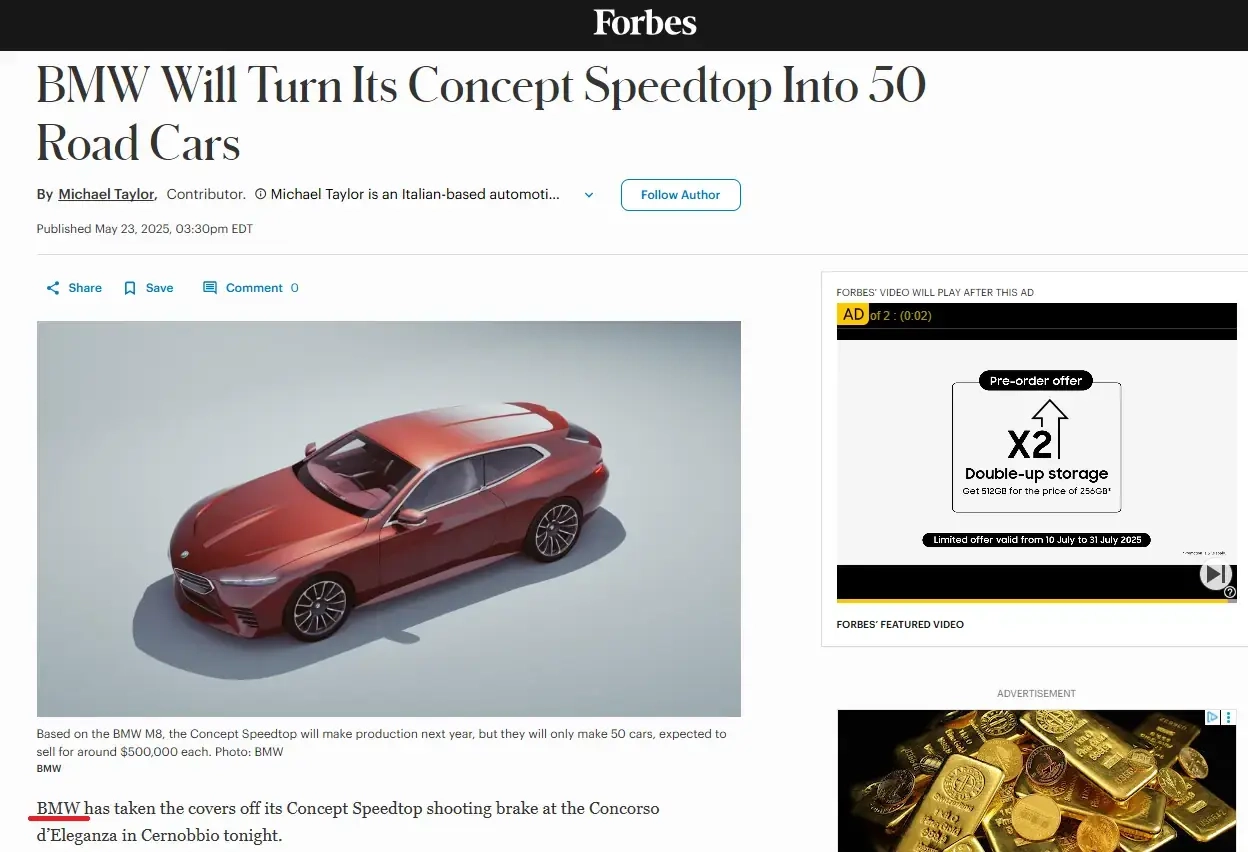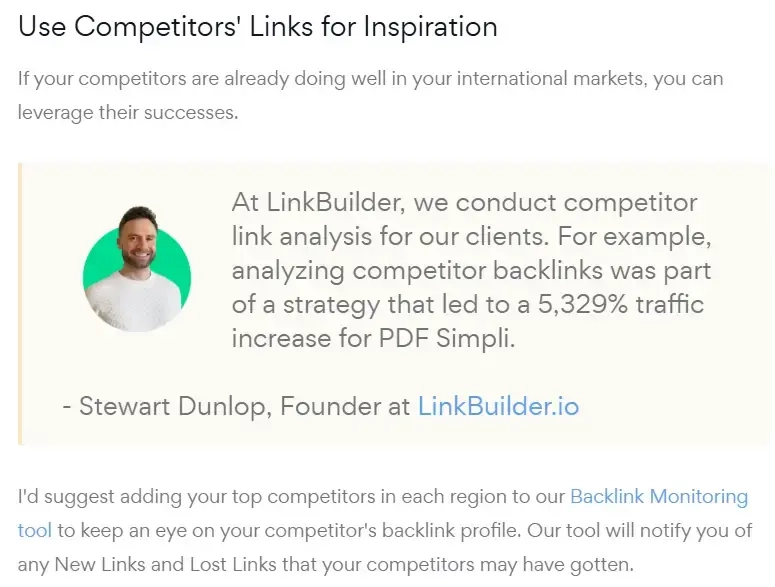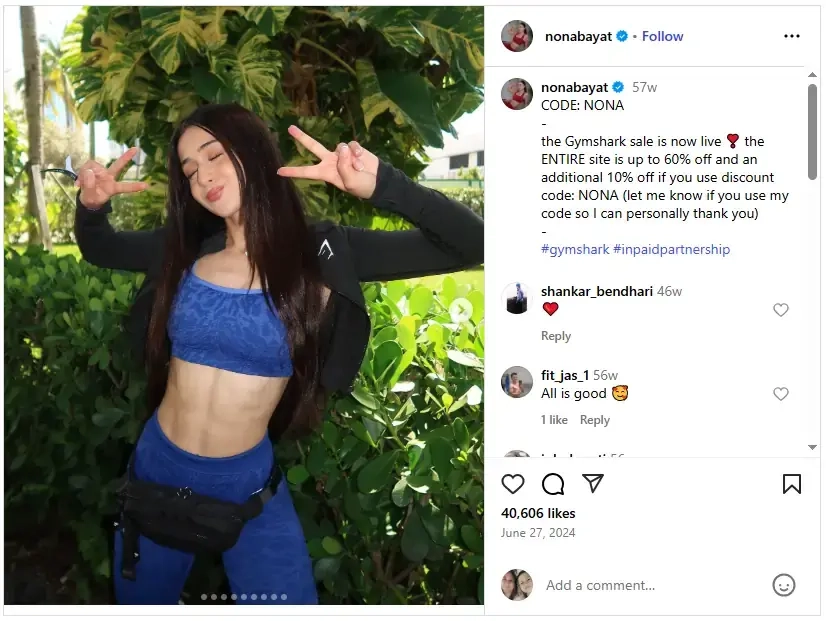
Brand Mentions For SEO: What They Are And Why They’re More Important Than Ever
AI is completely reshaping search and brand visibility. It’s no longer just about backlinks and keyword rankings. It’s about being mentioned.
With Google’s AI Overviews now appearing in roughly 13% to 20% of search results, businesses need to rethink how they rank to get cited in these overviews.
One of the most effective ways to do that? Securing brand mentions (especially linked ones!)
When your brand is mentioned across high-authority sites, social platforms, and media outlets, it sends strong relevance and credibility signals to search engines.
That not only helps you rank better in traditional search results, but it also increases your chances of being featured in AI-generated summaries.
In this article, we’ll explain what brand mentions are, why they matter more than ever, and how to consistently earn them to stay competitive in today’s AI-driven search landscape.
What Are Brand Mentions?
A brand mention is anytime your business’s name appears online. This could be in a blog post, news articles, a review, a forum thread, or even a podcast transcript.
Below is an example of a branded mention where the news platform Forbes mentions the BMW brand in an article. Note that they’ve done so without linking to them:

It doesn’t matter if there’s a clickable hyperlink pointing to your site (also known as a backlink) or not. If someone refers to your brand by name, it’s a brand mention.
From a search engine optimization (SEO) standpoint, brand mentions are super important because they help search engines like Google, as well as AI search platforms, associate your brand with a particular set of topics, industries, or product categories.
They contribute to what’s called entity-based SEO, where search engines go beyond keywords and start making connections between people, places, businesses, and concepts.
One study by Semrush confirmed that Google’s ranking algorithms prioritize entity recognition, with entities seriously outperforming traditional keyword-based content.
How brand mentions impact AI search
The more your brand shows up across the web and is linked to, the more it looks like an authority in your space. It becomes something search engines and large language models (LLMs) are more likely to reference, recommend, and rank.
Brand mentions are especially relevant in today’s AI-driven search environment. In tools like Google’s AI Overviews, Bing’s Copilot, and even ChatGPT’s browsing feature, the quality and quantity of brand mentions can directly influence whether your brand gets pulled into an AI-generated summary.
As you can see below, BMW is mentioned in a Google AI Overview when we search for the model of car that was mentioned in the Forbes article above. This is likely due to a number of brand mentions across the web:

These AI systems are built to recognize patterns of authority, and a good number of linked brand mentions across trusted sites makes your business more recommendable.
It’s also worth noting that linked brand mentions, which are mentions that include a hyperlink to your site, are more powerful for SEO than unlinked ones. A brand mention helps establish your presence, while a link helps transfer authority.
What is the difference between direct and indirect brand mentions?
When we talk about brand mentions, we usually split them into two categories: direct and indirect. Both have value, but they play different roles in how search engines and AI systems understand and prioritize your brand.
Direct brand mentions
A direct brand mention uses your brand’s actual name in the content. For example, below we’ve been mentioned by name and linked to in this article:

This is the clearest, most useful type of brand mention. It gives Google a very clear reference to your brand and, if it’s linked, a direct path to crawl and assign authority.
Direct mentions help search engines associate your brand with specific topics, industries, or services. This is super important for improving visibility in both traditional search and AI-generated overviews.
Indirect brand mentions
An indirect brand mention refers to your business or product without using your name specifically.
Here you can see in one of our case studies that we’ve worked with an employee transparency platform, but we haven’t mentioned them by name:

These mentions are harder for Google or an AI system to confidently tie back to your brand unless there’s enough surrounding context. Or unless it’s clear from other references on the page.
This doesn’t make indirect mentions useless, especially if they appear in high-authority publications or with unique identifiers like your CEO’s name or proprietary service you offer.
But from an SEO perspective, direct mentions carry more weight, especially when they’re consistent across multiple sources.
The Benefits of Securing Brand Mentions
Now that you know a bit more about brand mentions, here are some of the key benefits of securing consistent, relevant mentions across authoritative sites:
Increases the chances of being cited in AI overviews
We’ve already covered this, but it’s worth mentioning again. AI-powered experiences rely on credible sources.
Brands that are frequently mentioned (and linked) across trusted domains are far more likely to be included in AI-generated answers and recommendations.
Boost your brand’s visibility
Every time your brand gets mentioned and linked to online, especially in industry-relevant content, it strengthens your digital footprint.
These relevant mentions help Google, Bing, and other platforms better understand who you are and what you do.
As a result, your brand becomes more visible in both traditional search results and newer search formats like AI overviews.
Strengthens your brand narrative
Mentions across diverse, high-quality sites help shape your brand narrative. Instead of relying only on what you say about yourself on your own website, search engines (and people) start to understand a broader picture of your expertise and authority.
It creates a more well-rounded perception of your brand that feels authentic, not just promotional.
Contributes to higher search rankings
While brand mentions aren’t a direct ranking factor in the same way backlinks are, they still contribute to overall SEO performance.
Mentions from authoritative sources help build topical authority and entity recognition. These are two very important elements in how Google ranks websites.
And when those mentions are linked, they pass on SEO value, too.
Builds trust with potential customers
When someone is researching a product or service, seeing your brand name and link pop up across different reputable sites adds legitimacy.
It’s like social proof, just in search form. The more often people come across positive mentions of your business in articles, roundups, interviews, or on review sites, the more confidence they’ll have in choosing you over a competitor.
What Is Brand Mention Optimization?
Brand mention optimization is the process of actively managing how, where, and in what context your brand is mentioned online to improve search visibility, authority, and brand reputation.
It’s not just about getting your name out there. It’s about getting your brand mentioned and linked to in the right places by the right sources, and in a way that reinforces your relevance to topics or industries.
Brand mention optimization is a strategic blend of SEO and digital PR. You’re identifying opportunities to earn new mentions and links, improving the quality of existing ones, and making sure those mentions are aligned with your broader SEO goals.
What does brand mention optimization involve?
Here are some of the main elements that go into optimizing your brand mentions:
Securing mentions from relevant, high-authority sources
Not all brand mentions carry the same weight. A single linked mention from a well-respected, topically relevant site carries far more weight than dozens of low-quality ones.
Part of optimization is prioritizing the kinds of mentions that make an impact: the ones that come from trusted domains in your niche or industry.
Encouraging direct, linked mentions
When a site mentions your name but doesn’t mention you, that’s a missed opportunity.
One part of brand mention optimization is identifying and converting unlinked mentions into backlinks, which is known as link reclamation.
But more broadly, it’s about encouraging direct, linked mentions using the tactics we’ll outline shortly. These are mentions that pass authority and associate your brand with a topic cluster.
Aligning mentions with relevant keywords or topics
Where possible, it’s useful to optimize mentions so they appear alongside your target keywords, products, or services. This helps build stronger topical relevance for search engines to consider.
For example, if you’re a SaaS company focused on marketing automation, your brand should ideally be mentioned in the context of conversations about automation tools, customer relationship management (CRM) systems, or email marketing.
4 Ways to Secure Brand Mentions
You now know more about brand mentions and why they’re so important and beneficial. Now, let’s look at some specific strategies you can use to earn brand mentions:
1. Use digital public relations (PR)
Digital PR is one of the most effective ways to secure high-quality, linked brand mentions. About 90% of PR professionals agree that it’s also great for building backlinks.
It’s all about strategic outreach, relationship building, and earning relevant, authoritative placements across all kinds of sites that both search engines and your prospective customers trust.
This tactic involves getting your brand featured and linked to in third-party content. That could include industry news articles, thought leadership roundups, product reviews, expert interviews, podcast appearances, or data-driven stories.
When you get digital PR right, these placements result in direct and even linked mentions that search engines favor hugely.
This is what digital PR usually looks like in practice:
Create newsworthy hooks
To get the media’s attention, you need something worth talking about. This could be:
A new product or feature launch.
Unique internal data or research findings.
A company milestone or funding announcement.
Insightful commentary on a trending industry topic.
Journalists and content editors are always looking for fresh angles. If your pitch has a clear story and a timely hook, it’s far more likely to earn you coverage and, with it, a valuable brand mention.
Pitch to the right publications
Relevance is key here. There’s no point in landing a mention on a site that has nothing to do with your niche. The goal is to appear in front of audiences who are already interested in what you offer.
This means targeting:
Industry-specific blogs and magazines.
Trade publications.
Niche media outlets.
Relevant podcasts and newsletters.
Not only are these more likely to accept your pitch, but a mention from them carries more weight in building your brand’s topical authority.
Offer expert commentary
Another good way to get more brand mentions is by positioning your founder, CEO, or in-house specialists as go-to experts in your industry.
Consider the following:
Contributing quotes for roundups or news pieces.
Providing valuable insights on breaking news.
Offering predictions or commentary on niche developments.
When you become a regular, reliable source for expert input, publications will naturally cite and link to your brand, especially when they reference your name, job title, or company.
As you can see below, we’ve contributed an expert quote to an SEO-related article, earning us a brand mention and a backlink:

Build relationships with journalists and content editors
Most successful digital PR doesn’t happen overnight. It comes from nurturing relationships over time.
Reach out with useful resources, share story ideas that match the publication’s topic, and always make it easy for them to quote or feature you.
The easier you make their job, the more likely they are to come back to you in the future, and that means more consistent brand mentions.
Track and follow up on live coverage
Once you’ve secured a mention, don’t just move on. Monitor the live piece to make sure your brand is represented accurately, and that there’s a link included (if not, that’s your opportunity to ask for one).
You can also enhance the impact of the mention on your own channels, which helps improve visibility and shows journalists that you’re engaged and appreciative of the coverage.
The Oklahoma Hall of Fame is likely using digital PR to get mentioned in local news outlets. In the example below, they’ve issued a press release about an announcement that they’ll be
contributing to scholarships, which has landed them a mention in an authoritative, local publication:

Expert Digital PR Services from an Agency You Can Trust
Did you know that we offer professional digital PR services to our clients? There’s no need to try to tackle this brand mention tactic alone. Our expert team can create a tailored digital PR strategy that earns you high-quality brand mentions from authoritative domains. Get in touch with us here at LinkBuilder to find out more.
2. Create high-quality, valuable content
Another reliable way to earn organic brand mention is by publishing content that’s actually worth referencing and linking to.
If your content is original, helpful, and authoritative, chances are that people will cite it. This type of content is known as linkable assets, and around 37% of marketers consider them to be one of the best link-building tactics.
Whether it’s a blogger linking back to a statistic, journalists referencing a quote, or industry peers highlighting your insights, great content earns attention without you having to chase it.
But high-quality content doesn’t just mean blog posts. Multiple formats consistently attract relevant brand mentions when done well:
Original research and data studies
Publishing proprietary data is one of the best ways to get cited. If you run a survey, analyze industry trends, or compile internal metrics into a report, you’re giving journalists, bloggers, and other content creators something valuable to reference.
It also positions your brand as a source of truth within your niche, which naturally leads to more mentions and backlinks.
Definitive guides and evergreen resources
In-depth, well-structured guides that explain a topic comprehensively tend to get shared and linked.
If your content becomes the go-to resource for a specific topic, people will mention it whenever that topic comes up.
These types of assets often attract passive mentions over time, especially if they’re updated regularly and show up in search results.
Thought leadership pieces
Publishing opinionated, well-reasoned takes on industry trends or controversial topics can also attract brand mentions.
People tend to cite expert commentary when they’re writing about the same topic or when they need to highlight different perspectives.
These pieces are hugely effective when they come from a named individual, like a founder or CMO, who’s tied back to your brand.
Interactive or visual content
Infographics, charts, calculators, and tools are great for driving engagement, and they tend to get mentioned in listicles, blog posts, and social threads. This is because visual content gets 94% more views than text-only content.
If you’re able to create a visual asset that makes complex information easier to digest, people will often embed it and credit your brand in the process.
Content that fills the gap
Sometimes, securing mentions is as simple as spotting what’s missing in existing content and filling that gap.
Use tools like Ahrefs or Semrush to analyze what’s already ranking, look at competitor mentions, and figure out where you can contribute something new, more detailed, or more useful.
In the example below, HubSpot has referenced a data-driven report by Ahrefs in its article, landing them a brand mention and backlink. This is likely because Ahrefs’ content was so good that
HubSpot simply had to mention it:

3. Leverage influencer marketing
Influencers can be a powerful channel for getting brand mentions, especially in niche spaces where trust and relevance really matter.
Over 80% of marketers say that influencer marketing is a super effective strategy, and nearly 76% of brands are planning on spending money on this tactic in 2025.
When someone with a loyal following talks about your product or service, it often results in organic mentions across blogs, YouTube, podcasts, and social media.
The point here is to work with influencers who are aligned with your audience and industry. You’re not just paying for exposure. You’re building third-party credibility.
Whether it’s a review, tutorial, or a casual shoutout, these mentions reinforce your brand’s authority and can even drive both traffic and links.
Just make sure you give influencers a reason to mention you: offer value, unique angles, or co-create content they’re excited to share. The more natural the collaboration, the more impactful
the brand mention.
Gymshark, a fitness apparel brand, has landed branded mentions across social media through influencer marketing, particularly with micro-influencers who are fitness enthusiasts:

4. Improve your social media presence
A strong social media presence makes your brand more visible, trustworthy, and more likely to be mentioned both on social platforms and across the web.
According to Exploding Topics, engagement on social media platforms can seriously boost branded search volume and links, which (as you know by now) are super important for SEO.
When people regularly see your brand sharing useful content, engaging with others, and contributing to industry conversations, you stay top of mind.
That familiarity increases the chances of someone referencing your brand in a blog post, newsletter, video, or podcast.
It’s not about chasing virality. It’s about being consistently active, relevant, and helpful in the right spaces.
Whether it’s LinkedIn, X, TikTok, or niche communities like Reddit, your presence should reflect your expertise and make it easy for others to mention and link to your brand when it's relevant.
Also, don’t forget to promote your PR wins, content, and collaborations. The more visibility you give your brand assets, the more likely they are to attract mentions beyond social media itself.
How to Find Brand Mentions?
Finding brand mentions starts with monitoring where your business is being talked about online, whether or not those mentions include a backlink.
One of the easiest and free tools for this is Google Alerts, which you can find out how to set up in our guide to unlinked mentions. You simply enter your brand name (and any common variations), and you’ll get notified when a new page pops up that mentions it.
If you’re looking for more robust ways to monitor brand mentions, tools like Ahrefs, Semrush, or Brand24 can give you deeper insights.
These platforms help you spot mentions across websites, forums, and social media. More importantly, they let you analyze brand mentions by source, sentiment, and whether or not they’re linked.
This gives you a better picture of how your brand is being perceived and where your best opportunities are for outreach or link reclamation.
Land High-Impact Brand Mentions with Expert Help
Securing consistent, relevant brand mentions across the web isn’t just a nice-to-have. It’s a critical part of building your brand’s visibility and authority.
From improving your search rankings to getting cited in AI overviews, brand mentions play a bigger role in SEO than ever before.
At LinkBuilder, we help businesses earn positive mentions that make a difference. Our team runs targeted digital PR campaigns designed to get your brand featured in authoritative publications and conversations.
We also track and optimize unlinked mentions, turning them into valuable backlinks wherever possible.
Want to build a stronger brand and stay ahead of AI search? Get in touch with us to see how we can support your brand mention strategy.

